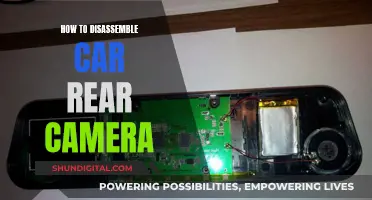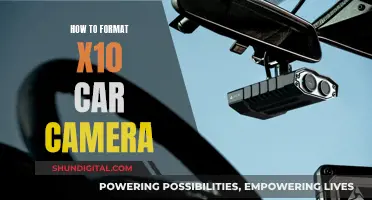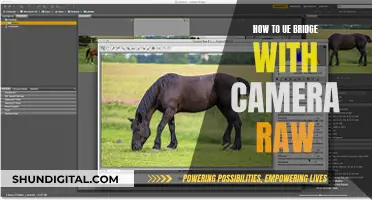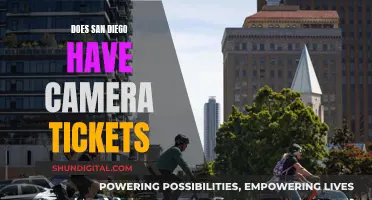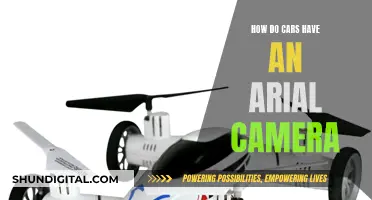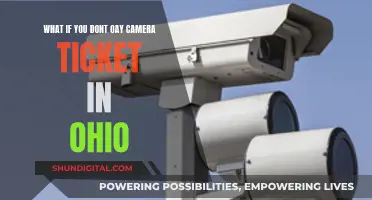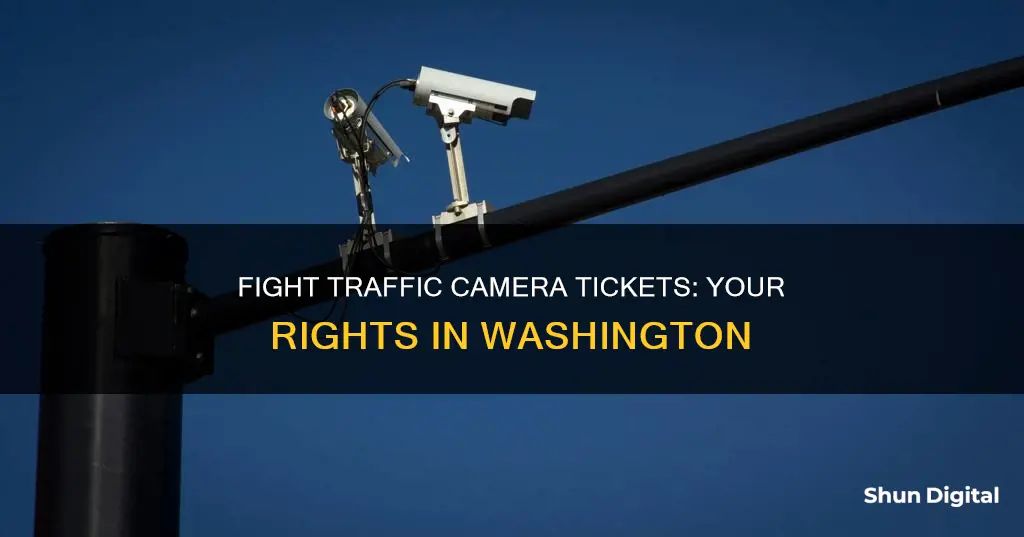
If you've received a traffic camera ticket in Washington, there are several ways to fight it. First, it's important to note that camera tickets are treated like parking tickets and won't go on your driving record or impact your insurance rates. However, failure to pay may result in a hold on your vehicle registration. If you want to dispute the ticket, you can plead not guilty by mail, online, or in person at an arraignment, and request a formal hearing. You can also try to get the fine reduced by providing a valid reason for your infraction, although this option is not available for speeding in school zones or passing a stopped school bus. If you weren't the driver, you can file a Declaration of Non-Responsibility, stating under oath that someone else was in control of the vehicle. This declaration can usually be found on the ticket or the court's website, and you don't have to name the actual driver. To build a stronger case, research the law in your area and check for cases that might help your defense. For example, some states require warning signs for cameras before a traffic light, and others recognize a necessity defense for speeding.
| Characteristics | Values |
|---|---|
| Ticket type | Camera ticket |
| Ticket cause | Speeding, red-light, school zone, bus lane infractions, etc. |
| Ticket issuer | Seattle Police Department, Washington State Legislature |
| Ticket recipient | Registered owner of the vehicle |
| Ticket consequences | Fine, hold on vehicle registration, impact on credit rating |
| Ticket response options | Pay the fine, request a contested hearing, submit a declaration of non-responsibility |
| Ticket reduction eligibility | Low-income, first-time offender, financial assistance from the state |
| Ticket dismissal methods | Proving incorrect date, time, location, unclear photos, lack of warning signs, necessity defense |
What You'll Learn

Check the ticket details and photos
When you receive a traffic camera ticket in the mail, it should include a notification with photos or video evidence of your car committing a traffic violation. It is important to carefully review the details and photos/video provided with the ticket. Here are some steps you can take to check the ticket details and photos:
- Check the date, time, and location: Confirm that you were driving the car at the specified date, time, and location of the violation. If someone else borrowed your car, you may not be held liable.
- Understand the violation: Make note of the specific code section you are cited for violating. Read up on the law to understand the elements of the violation and the associated penalties. Ensure that the penalties mentioned on your ticket match those outlined in the code section.
- Review the photos or video carefully: Confirm that the vehicle in the photos or video is indeed your car and that your license plate is clearly visible. If the photos are blurry or unclear, it may be challenging to confirm the vehicle's identity. Additionally, check if there is a clear and identifiable photo of you in the driver's seat. If not, this may provide a defence, especially if you live in a jurisdiction where the ticket must be issued to the driver, not the registered owner of the vehicle.
- Obtain additional photos or video: If photos or video were not included with your citation, you may need to wait until your trial is scheduled to request copies from the relevant law enforcement agency.
- Analyse the context of the violation: Try to recall the circumstances surrounding the violation. For example, you may have been making a legal right turn on a red light when the camera captured the photo. Understanding the context can help you determine if you had a valid reason for your actions.
By thoroughly reviewing the ticket details and visual evidence, you can gain a better understanding of the violation and explore potential defences or mitigating factors. Remember that it is the prosecution's responsibility to prove each element of the violation, and you have the right to dispute the evidence presented.
Speeding Camera Tickets: Are They Legally Binding?
You may want to see also

Plead not guilty by mail, online, or in court
If you want to dispute a traffic camera ticket, you must plead not guilty. You can do this by mail, online, or in court.
Pleading Not Guilty by Mail or Online
Some jurisdictions allow you to respond to the citation by mail or online, rather than going to a live arraignment in traffic court. This is usually reserved for less serious traffic violations such as speeding or running a red light. Check your citation and make sure you plead not guilty before the deadline, which is typically within 30 days of receiving the ticket.
Pleading Not Guilty in Court
If you have to appear in traffic court, show up at the date and time listed on your citation. This may be called a first appearance or a notice hearing, depending on your jurisdiction. When you plead not guilty, demand a full formal hearing or trial. You may also be required to attend other hearings, such as a pre-trial hearing or mediation. Do not accept anything less than a full dismissal of your traffic camera ticket.
Unleash Camera Raw: Bridge's Hidden Gem
You may want to see also

Request a formal hearing
If you want to dispute a traffic camera ticket, you must plead not guilty and request a formal hearing. You can do this by writing to your traffic court, or by mail if you're given that option. Hearings are usually set 60 days out from when the court receives your request.
Before your hearing, research the law in your area to build a legal defence. For example, some states require clearly visible warning signs for cameras to be posted before a traffic light. If the warning signs were obscured or not present, you might not have to pay the fine.
You should also request production of documents, such as full maintenance records for the camera and the traffic light or speed monitoring system. If their accuracy wasn't tested shortly before your ticket was issued, the photo is potentially unreliable as evidence.
At your hearing, arrive at the courthouse with copies of any documents you intend to use as evidence. Treat the judge and all courthouse staff with respect. Listen quietly while the prosecutor presents their case, making notes of anything you want to bring up later.
Coach Camera Bags: History and Evolution
You may want to see also

Research the law and build a defence
Researching the law in your area will help you build a legal defence. You can start by looking for cases in your city or county about traffic cameras and see if any appellate court decisions have ruled on the legality of traffic camera tickets.
For example, some states have specific rules about where warning signs must be posted for traffic lights. If the warning signs were obscured or not present, you'd have a defence.
Some states recognize a necessity defence for speeding. Since a camera cannot tell why you were speeding, you may be able to get out of the ticket this way.
If you were not driving, you can file a Declaration of Non-Responsibility online. This is a sworn statement under penalty of perjury that the vehicle was not in your care, custody, or control at the time of the violation.
Ohio's Camera Tickets: Mail Delivery and Due Dates
You may want to see also

Present your case in court
If you are fighting a traffic camera ticket in Washington, there are several steps you can take to present your case in court. Firstly, it is important to understand the specifics of your case. Review any photographs or video evidence provided with your ticket, and check the date, time, and location of the alleged violation. If you were not driving the vehicle at the time, you can file a Declaration of Non-Responsibility, which is a sworn statement that the vehicle was not in your care or custody when the violation occurred. This can be submitted online, by mail, or by fax.
If you intend to plead not guilty and dispute the ticket, you must do so before the deadline, which is typically around 30 days from receiving the ticket. You can plead not guilty by mail, online, or in person at an arraignment, also known as a first appearance or notice hearing. Request a full formal hearing or trial, as this will give you the opportunity to present your case and defend yourself.
Before your hearing, gather any evidence that may support your case. This could include maintenance records for the camera, traffic light, or speed monitoring system, as well as research on applicable laws and cases regarding traffic cameras in your city or county. You may also want to review potential defenses, such as the necessity defense for speeding or the lack of visible warning signs for cameras.
When presenting your case in court, it is important to remain respectful and professional. Listen carefully to the prosecutor's arguments and make notes on any points you wish to address. You can challenge the admissibility of the photograph as hearsay, assert your right to confront witnesses, and dispute the authenticity of the photograph if no one from the company that maintains the camera is present to testify. Additionally, you can argue that the prosecution cannot prove you were driving the vehicle or that the traffic light was functioning properly.
It is important to note that camera tickets in Washington are treated similarly to parking tickets and do not usually affect your driving record or insurance rates. However, failure to pay the fine may result in a hold on your vehicle registration.
Low Power Mode: Camera Disabled or Not?
You may want to see also
Frequently asked questions
Camera tickets are treated like parking tickets and will not appear on your driving record. You can either pay the fine or fight the ticket.
You can request a contested hearing. First, check the video affiliated with your infraction. Your ticket will feature instructions on how to proceed if you choose to fight the ticket. Generally, you just need to check the contested hearing box and mail the ticket back to the court.
If you weren't driving, you can file a Declaration of Non-Responsibility online. This is a sworn statement under penalty of perjury that the vehicle was not in your care, custody, or control at the time of the violation.
If this is your first camera ticket, and you are currently receiving financial assistance from the state of Washington, you may be eligible for a 50% reduction in the ticket amount. To get the reduction, you must also be the registered owner of the cited vehicle and admit that you committed the infraction.
No, camera tickets are treated like parking tickets and will not impact your insurance rates.


